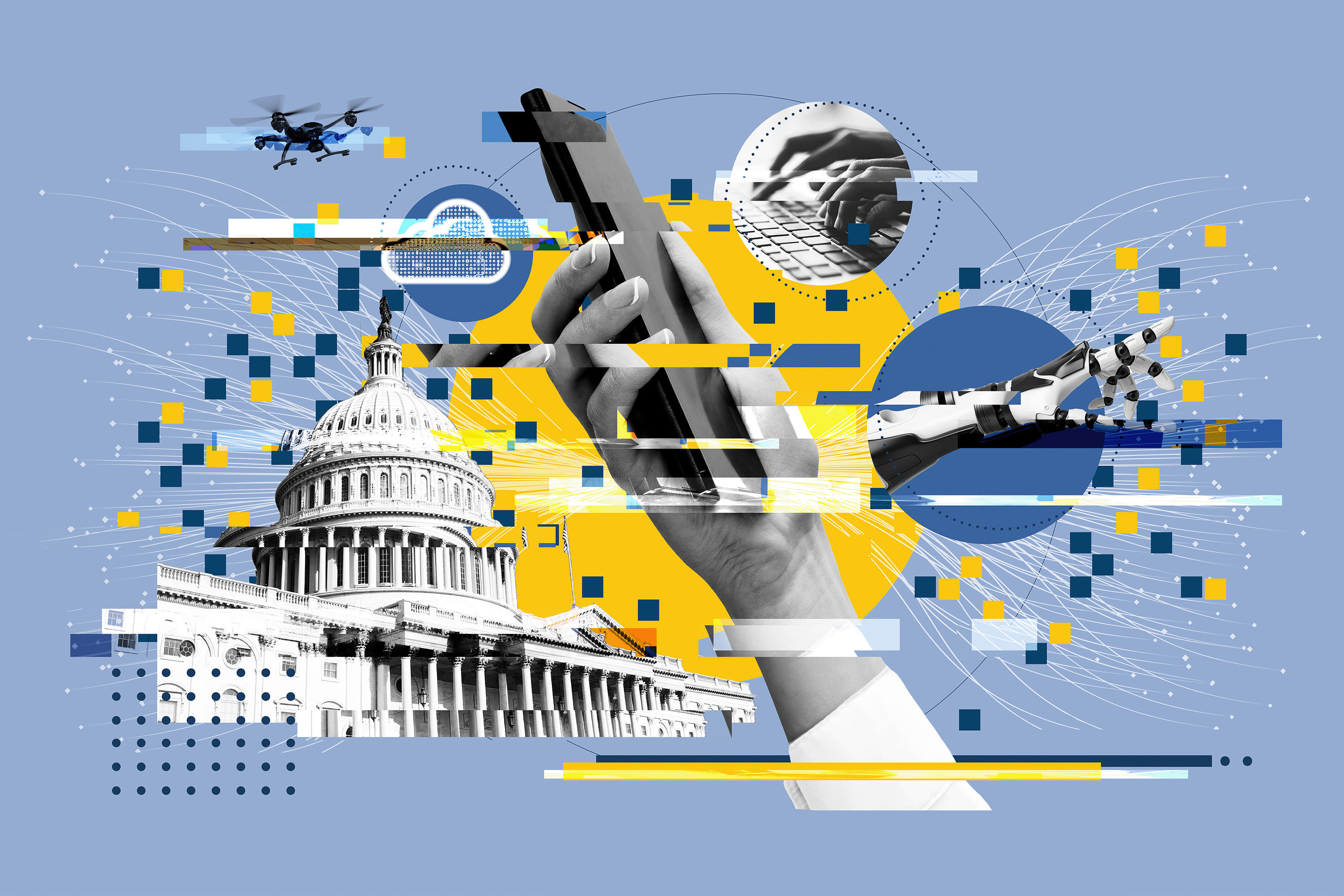Key Insights and Takeaways
As emerging technologies become increasingly integral to countries’ national security and economic interests, tech regulation is being leveraged by countries as a tool to drive a range of desired policy outcomes. While far from the only actors doing so, China and the EU countries, among others, are in the process of enacting regulatory regimes that favor their domestic tech sectors over international competitors. The U.S. Congress is now looking to regulate tech further, with multiple bills currently being debated. The current package of laws under consideration would enact new antitrust restrictions on a handful of U.S. tech companies based on their revenues and user bases.
As major global tech hubs have emerged in the past decades, from Beijing to Mumbai, there is intense competition to attract investment and establish leadership across a range of new technologies such as artificial intelligence (AI) and quantum computing. As companies and countries compete to establish leadership in emerging technologies, there will be wide-ranging national security and economic implications. These include, for example, strengthening cybersecurity, developing new weapons systems, and unlocking economic efficiencies from AI-integration into supply chains. The unfolding global competition to capture the gains from the development of these new technologies makes enacting effective regulatory policy more urgent as well as more complex.
Against this backdrop, FP Analytics, with support from the Computer and Communications Industry Association (CCIA), convened panels of tech policy experts working within the private sector, government, and think tanks. Across two lively dialogues, experts discussed key considerations for the U.S. and other countries that are looking to drive tech innovation and enact effective regulations.
Key Points
The global nature of the technology sector means that domestic regulations will have broad impacts internationally. For major economies like the U.S., China, and the EU, current and future regulations could broadly re-shape the way major tech companies compete internationally.
National security and economic competitiveness interests have become intricately intertwined with the technology sector. The potential impact of emerging technologies such as AI on a range of sectors, from cybersecurity to supply chains, means that regulations impacting their development will inevitably also impact security and economic progress.
Countries are increasingly using regulation to prioritize their domestic tech industries, and this trend is likely to continue. From government-driven investment in the development of semiconductors, to regulation limiting international competitors, government policy is influencing how companies compete within the technology sector.
U.S. companies have been long-standing leaders in the global tech sector, but their position is being challenged by international competitors and shifting regulatory requirements developing in the U.S. and abroad. As the U.S. seeks to regulate its own tech sector, it faces the challenge of boosting competition without weakening its international position.
The discussions on the future direction of technology leadership and effective regulation raised a broad range of issues. While participants focused the discussions on the national security and economic impacts of the current package of tech regulations under consideration by the U.S. Congress, the dialogues covered additional topics, such as the complicated nature of the U.S.-China relationship in tech, the EU’s Digital Markets Act and Digital Services Act, and the potential impact of decentralization on the tech sector. The complex nature and breadth of issues reflect the competing considerations lawmakers are faced with while crafting regulations. Participants further stressed the potential for unintended consequences, and the importance of carefully assessing and anticipating the full range of impacts of any proposed regulations.
This analysis was produced by FP Analytics, the independent research division of Foreign Policy, and was supported by the Computer and Communications Industry Association (CCIA). CCIA did not contribute to any of the content, nor did it have any influence over any part of this analysis. The content of this report does not represent the views of the editors of Foreign Policy magazine, ForeignPolicy.com, or any other FP publication.


